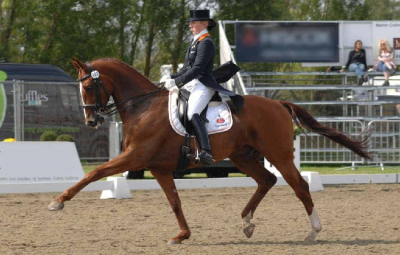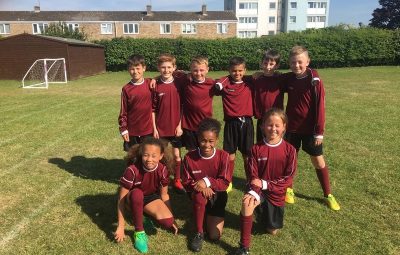A sports injury is one of the most taxing experiences a person can go through, and while it may be tempting to ignore the discomfort, this will not aid your recovery.
Accidents and overplaying can lead to injuries, so it’s crucial to rest and recuperate your muscles after a session with your sports injury clinic in Singapore; one may require a longer recovery time or may risk worsening an injury. Both can result from beginning training too soon.
You must adapt and give yourself space to bounce back from your predicament. Read on how to recover quickly and safely by reading this article.
Get enough rest.
Waiting one to three days before working out is generally recommended after a health screening process in Singapore. However, the severity of your injury and your doctor’s recommendation will determine how long you’ll need to be off work. You can ponder the factors that led to your injury during this phase. What if you were putting too much pressure on your body? What if you did not warm up properly? Were you using sloppy methods? Consider how you can prevent a similar injury from occurring in the future by keeping this in mind. As a result of a freak accident, some people get injured. However, there are times when an injury can teach you something.
Limber up and stretch.
Injured athletes may have to delay their return to their usual training schedule for a while after seeing the results of an executive health screening in Singapore. When it comes to some injuries, such as torn or pulled muscles, it is best not to stretch them out. There is no benefit to doing so, and it will only worsen the situation. As long as your doctor gives the go-ahead, you may be able to engage in some light exercise and stretching. You can prevent future injuries by incorporating muscle stretching into your regular workout routine.
Follow injury prevention practices.
Injury prevention guidelines from a sports injury clinic in Singapore can help reduce your risk of suffering from an injury, even if it is impossible to avoid all accidents in all situations. Do more warm-up exercises or stretch for a longer time to see if that helps you. Is this a sign that you’re overdoing it? Hiring a personal trainer can be helpful if you’re having trouble sticking to a rigorous but safe regimen.
Prioritise mental recovery.
Whether they admit it or not, most athletes get affected mental health-wise due to injury. After an injury, it’s not uncommon for people to feel frustrated, angry, or isolated. Depression or anxiety can be a problem for some athletes, as well. So, take care of your mental well-being while you’re healing.
Some people want emotional support or make temporary lifestyle changes to keep themselves busy. After graduating from a health screening process in Singapore, a positive outlook and a successful recovery are achievable by setting new goals.
Understand your case and get a proper diagnosis.
After two weeks of rest and a break from sports, minor sprains and tears typically improve during executive health screening programs in Singapore. The lack of progress should prompt a trip to the sports medicine doctor.
Imaging tests like x-rays or scans will help confirm the diagnosis; a rehabilitation plan speeds up recovery with the least amount of side effects possible. The mental preparation for recovery can be boosted by understanding the injury’s nature.
Apply some ice if needed.
During the first few days after an injury, the benefits of icing are at their greatest. Apply a bag of crushed ice, frozen vegetables, or an ice pack to the injured area before and after your knee pain treatment in Singapore. Reducing blood flow to the injured area will help alleviate pain and reduce swelling. If you want to avoid frostbite, never put the ice right on your skin. Health care encourages the use of thin cloth or towel before applying it to the affected area. Allow your skin to cool down for 15 to 20 minutes between treatments.
Focus on eating healthy.
Your diet can have a significant impact on the healing programs done by a sports injury clinic in Singapore. Recovering athletes should consume a lot of protein during this time. The building of muscle, which you’ll need when you begin your re-training, is dependent on protein intake. In addition to anti-inflammatory properties, vitamin C and omega-3 fatty acids also aid healing.
Drink enough water.
Preventing and recovering from injury begins with staying hydrated. The best way to replenish your body is to drink water. In an executive health screening in Singapore, adequate hydration is critical. When you drink water, your blood becomes thinner, allowing more nutrients and oxygen to flow through your body more quickly. It’s best to stay away from caffeinated beverages as well, as they can interfere with the body’s ability to reduce swelling.
Strive to walk normally.
A relatively unflawed walking pattern is one in which the weight is distributed evenly between the feet, knees, hips, and the back. Sports participation should be postponed until any pain, weakness or muscle imbalance has been addressed.
Resistance training is an important part of muscle-strengthening because it improves balance, reflex control, and endurance in the injured tissues. This is often used in conjunction with conditioning and endurance training in a health screening in Singapore to expedite the return to sports of an injured area.
Lean on your friends.
You can hasten your recovery by enlisting the aid of those who love and care for you. Pain and depression are more common in those who lack a strong social network in the first six to twelve months following an injury than in those who have a strong social network.
It’s been difficult to maintain a social network because of the pandemic, but there are more ways than ever before to communicate electronically these days. Let someone else help you out the next time you need assistance. You can also reach them directly by phone.
Focus on the application of these neat tricks to ensure a smooth recovery. Check out Thomson Wellth Clinic to schedule your knee pain treatment in Singapore today.










